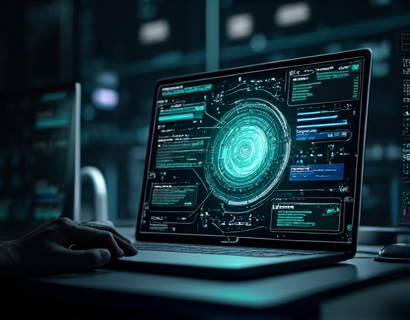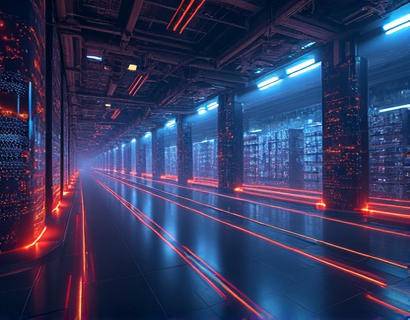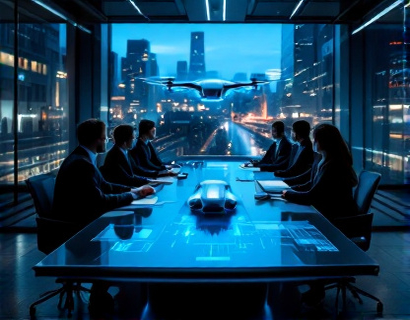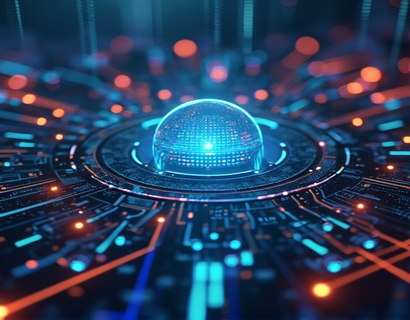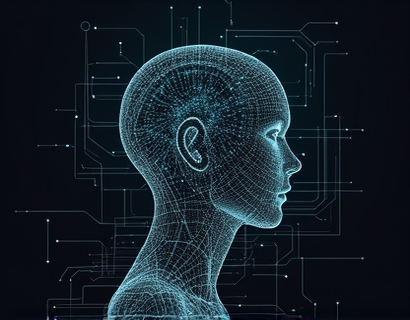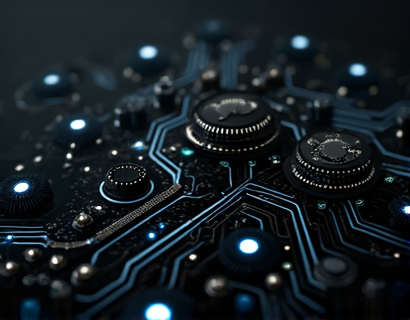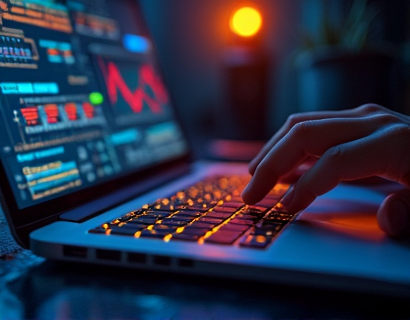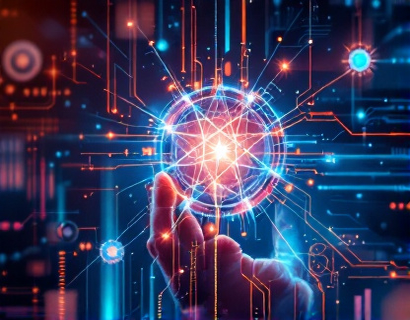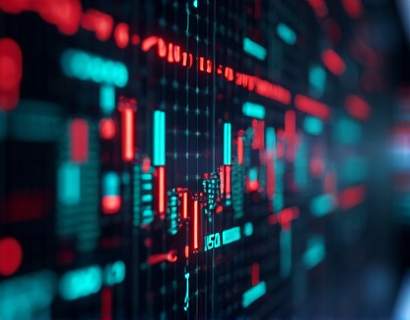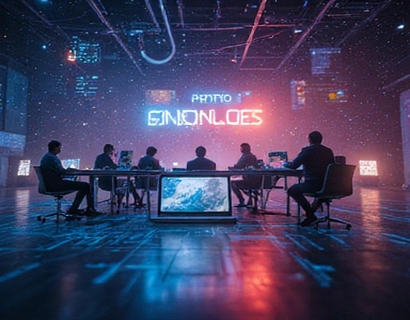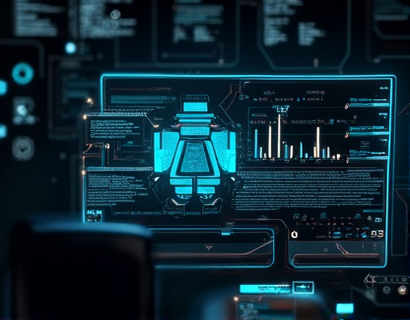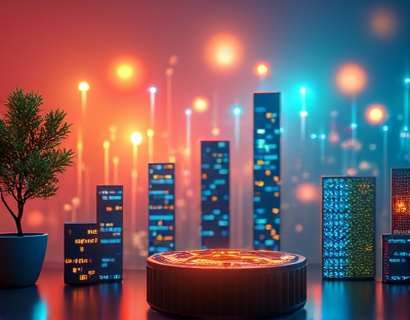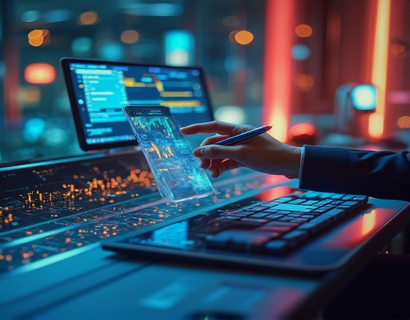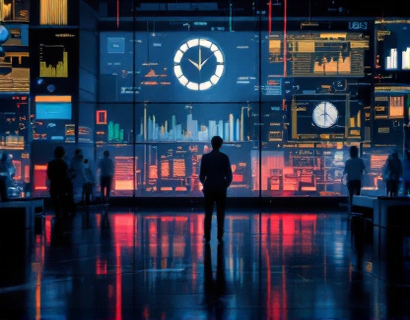Decentralized AI Meets Crypto: Transforming Digital Solutions for the Next Generation
The intersection of decentralized technologies and artificial intelligence is giving rise to a new era of digital solutions, one that promises to redefine how we interact with data, services, and each other. This transformation is not just about merging two powerful fields but about creating an ecosystem where decentralization and AI can thrive together, unlocking unprecedented potential for innovation and user empowerment. This article delves into the dynamics of this fusion, exploring how it is reshaping the digital landscape and paving the way for next-generation applications and services.
Understanding Decentralized AI
Decentralized AI, often referred to as DAI, represents a paradigm shift from traditional centralized AI systems. In a centralized model, data and processing power are concentrated in the hands of a few large corporations or entities, raising concerns about privacy, security, and control. Decentralized AI, on the other hand, distributes these resources across a network of nodes, leveraging blockchain technology to ensure transparency, security, and user sovereignty. This decentralization not only enhances privacy but also democratizes access to AI capabilities, allowing developers and users alike to participate in the creation and deployment of AI models without relying on centralized authorities.
The Role of Cryptocurrency in Decentralized AI
Cryptocurrency plays a pivotal role in the ecosystem of decentralized AI. Blockchain technology, the backbone of cryptocurrencies, provides a secure and transparent ledger for transactions and data exchanges. In the context of DAI, cryptocurrencies serve multiple purposes: they act as a medium of exchange for data and computational resources, incentivize participation in decentralized networks, and ensure fair compensation for contributors. Smart contracts, self-executing contracts with the terms directly written into code, automate and enforce agreements within the DAI ecosystem, reducing the need for intermediaries and enhancing trust among participants.
Benefits of Decentralized AI-Powered Ecosystems
The integration of decentralized AI and cryptocurrency offers numerous benefits that traditional centralized systems cannot match. First, decentralization enhances security by eliminating single points of failure and reducing the risk of data breaches. Second, it promotes transparency, as all transactions and data exchanges are recorded on a public ledger, accessible to anyone. Third, it fosters a more inclusive and equitable environment, where individuals and small entities can contribute to and benefit from AI advancements without being overshadowed by large corporations. Lastly, the use of cryptocurrencies ensures that participants are fairly rewarded for their contributions, creating a sustainable and motivating ecosystem.
Enhanced Privacy and Data Sovereignty
One of the most significant advantages of decentralized AI is the enhancement of privacy and data sovereignty. In a decentralized model, users retain control over their data, deciding who can access it and for what purpose. This is achieved through blockchain-based identity management systems and zero-knowledge proofs, which allow users to verify information without revealing sensitive details. Unlike centralized systems where data is often harvested and sold without user consent, DAI ensures that users are in charge of their own data, fostering a more trustworthy and respectful digital environment.
Improved Scalability and Efficiency
Decentralized AI ecosystems are designed to be highly scalable and efficient. By distributing computational tasks across a network of nodes, these systems can handle large volumes of data and complex computations more effectively than centralized servers. This distributed approach not only enhances performance but also reduces latency, making AI applications more responsive and user-friendly. Additionally, the use of edge computing in DAI networks further optimizes resource utilization, bringing computation closer to the data source and reducing the need for extensive data transfer.
Innovative Applications and Use Cases
The potential applications of decentralized AI are vast and varied, spanning multiple industries and domains. In healthcare, DAI can enable secure and privacy-preserving data sharing, facilitating collaborative research and personalized medicine. In finance, decentralized AI models can enhance fraud detection, risk assessment, and algorithmic trading, all while maintaining transparency and compliance. In the realm of Internet of Things (IoT), DAI can ensure secure and autonomous device communication, enabling smarter and more reliable connected systems. These examples illustrate the transformative impact of decentralized AI across various sectors, driving innovation and efficiency.
Challenges and Considerations
Despite its promising potential, the development and deployment of decentralized AI ecosystems come with their own set of challenges. One of the primary concerns is the technical complexity involved in building and maintaining a decentralized network. Developers need to navigate issues related to consensus mechanisms, scalability, and interoperability to create robust and efficient systems. Additionally, the regulatory landscape for decentralized technologies is still evolving, and navigating legal and compliance issues can be daunting. However, these challenges are not insurmountable, and ongoing research and collaboration are paving the way for more accessible and compliant DAI solutions.
Interoperability and Standardization
Interoperability is a critical factor in the success of decentralized AI ecosystems. For DAI to reach its full potential, different blockchain platforms and AI frameworks need to work seamlessly together. Efforts are underway to develop standards and protocols that facilitate interoperability, ensuring that AI models and data can be shared and utilized across various platforms without compatibility issues. Standardization also plays a crucial role in building trust and adoption, as it provides a common language and set of guidelines for developers and users.
Energy Consumption and Sustainability
Energy consumption is another significant consideration for decentralized AI, particularly in proof-of-work (PoW) blockchain networks, which require substantial computational power and, consequently, energy. The environmental impact of these networks has sparked debates and calls for more sustainable alternatives. Proof-of-stake (PoS) and other consensus mechanisms are being explored to reduce energy usage while maintaining security and decentralization. Additionally, the integration of renewable energy sources and energy-efficient hardware can further mitigate the environmental footprint of DAI ecosystems.
The Future of Decentralized AI and Crypto
Looking ahead, the future of decentralized AI and crypto is bright, with ongoing advancements promising to address current challenges and unlock new possibilities. The development of more efficient consensus mechanisms, advancements in zero-knowledge proofs, and the integration of quantum computing are just a few areas where significant progress is expected. These innovations will not only enhance the performance and scalability of DAI ecosystems but also expand their applicability across new domains.
Moreover, the growing awareness and adoption of decentralized technologies among individuals and organizations signal a shift towards a more decentralized and equitable digital world. As more people recognize the benefits of DAI, we can expect to see increased investment, research, and development in this space, driving further innovation and adoption.
In conclusion, the convergence of decentralized AI and crypto is revolutionizing the digital landscape, offering a powerful framework for building secure, transparent, and inclusive applications and services. By leveraging the strengths of both technologies, we can create a future where users have greater control over their data, developers have more opportunities to innovate, and society as a whole benefits from the transformative power of AI.



